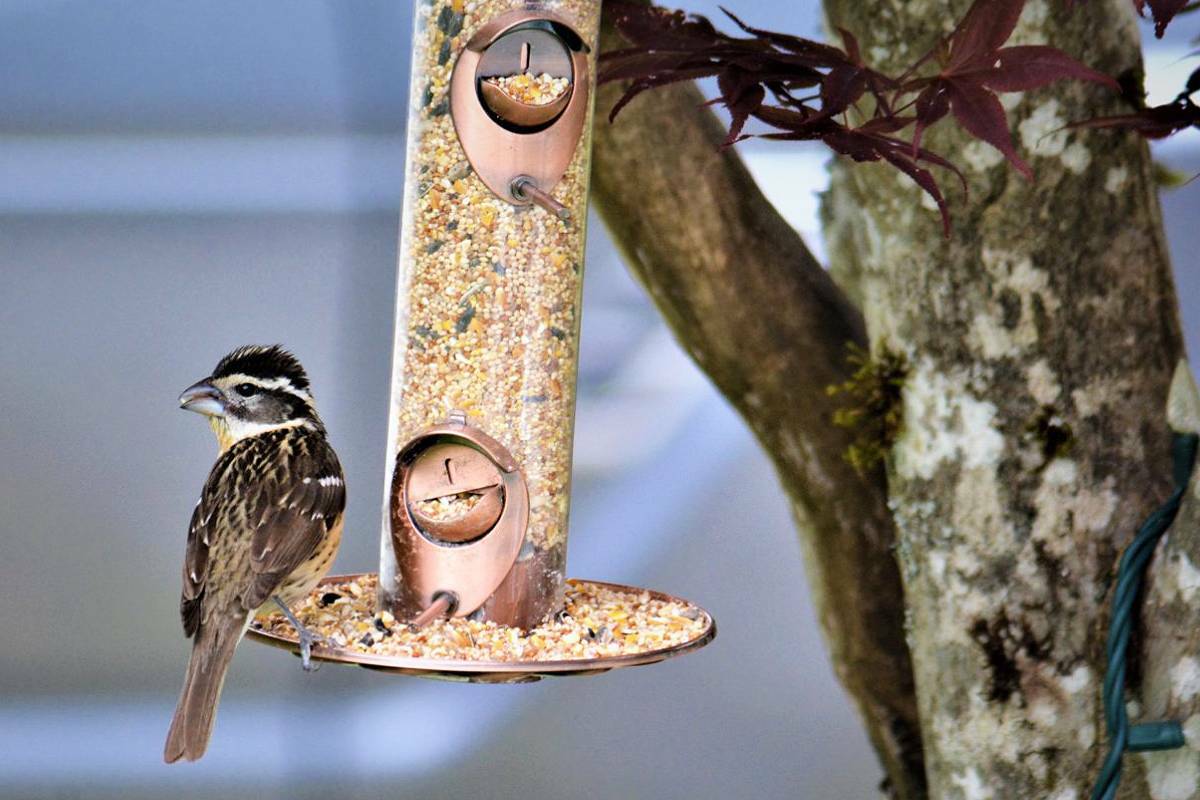With the recent snowfall and snap of cold weather, many may feel the urge to help feed small feathery friends.
However, the B.C. SPCA is urging the public to temporarily remove bird feeders and empty bird baths due to an avian influenza outbreak in wild birds, noted a press release issued last week.
Bird feeders can facilitate the spread of the disease by causing wild birds to gather, and when seeds fall, they are exposed to feces that accumulate below the feeder.
Avian influenza, also known as ‘bird flu,’ can put a variety of bird species at risk, noted the release, from great horned owls and eagles to ducks and crows. Pets birds can also be affected by the influenza, and it has been detected in mammals including rats, mice, cats and dogs.
“The number of confirmed positive cases is just the very tip of the iceberg,” said Andrea Wallace, manager of wild animal welfare for the society in the release. “The number of suspected cases – alive or deceased – far exceeds the capacity to test the animals. In addition, many animals that pass away in the wild are never recovered.”
Positive cases have been confirmed in all regios of B.C. The outbreak strain of the influenza, H5N1, is considered highly pathogenic, causing severe illness and death in birds.
According to the release, the virus spreads through infected bird feces and respiratory secretion and can be transported via clothing and shoes, creating further transmission risk. The society also advises people to thoroughly clean and disinfect clothing and footwear if they have been in an area where birds gather.
Sicks birds may appear unusually “fluffed up,” have nasal discharge, and have excessively watery eyes or swollen head, neck and eyes.
The B.C. SPCA can be reached at 1-855-622-7722 for advice about sick birds or for help finding a wildlife rehabilitation centre. Sightings of sick or dead birds are asked to be reported through the B.C. Wild Bird Mortality Investigation Protocol and Avian Influenza Surveillance Program or by calling 1-866-431-2473.
The society had also advised of a similar outbreak earlier this year in May.
READ MORE: National avian flu outbreak launches B.C. bird feeder safety debate
arts@nanaimobulletin.com
Like us on Facebook and follow us on Twitter

